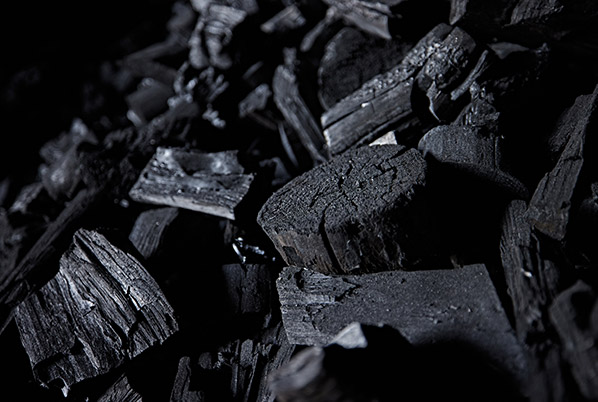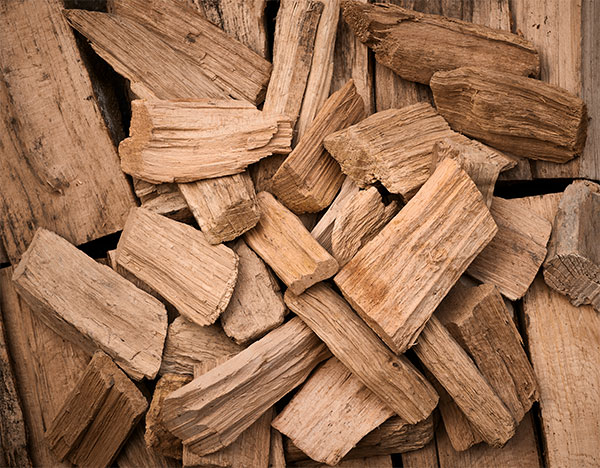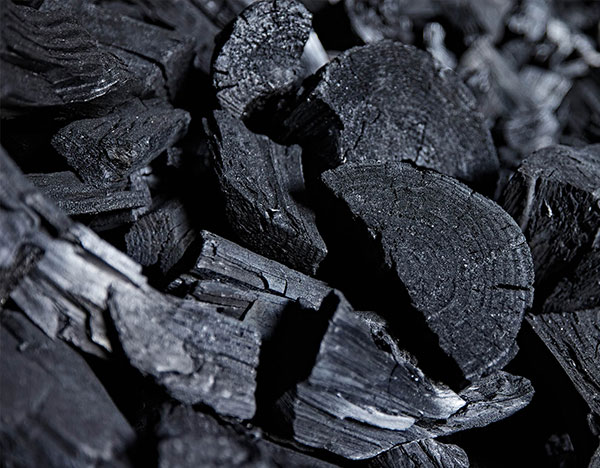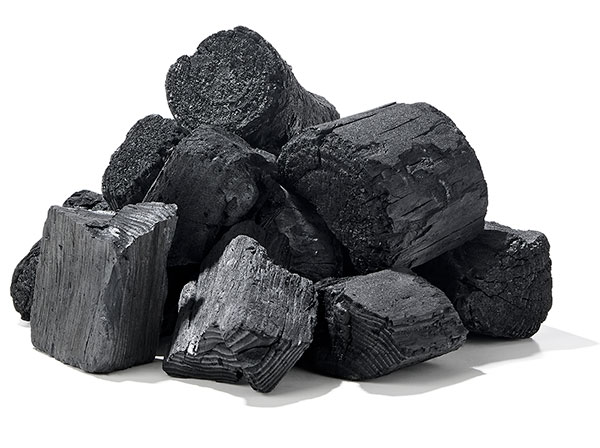What is biocarbon?
Biocarbon is defined as a carbon-rich solid product resulting from the pyrolysis conversion of wood residues or other biomass residues. Its manufacturing involves heating the biomass in the absence of air and within carefully controlled temperatures and timeframes. This process leads to the division of long-chain biomass molecules into new products. If the only substrate for its production is sustainably managed biomass, absorbing the carbon dioxide from the atmosphere, biocarbon is considered a renewable organic material. Thanks to its high carbon concentration and stability, it offers a substantial emission reduction when used industrially.

Biocarbon is a carbon-rich solid product resulting from the pyrolysis conversion of wood residues or other biomass residues.
A step ahead of charcoal
Contrary to charcoal, which are organic products intended for heating purposes, biocarbon is a carbon-rich material designed to be used in strategic applications. Its precious, unique properties predestine it to sectors such as metallurgy or building materials production, where few other alternatives exist to reach climate neutrality.
Innovative replacement for fossil coal
Although they are designed to reproduce the characteristics of high carbon fossil fuels, such as anthracite or metallurgic coke, the biocarbons produced by the SOLER Group are derived from renewable biomass resources. As a result, they offer the significant advantage of a carbon negative footprint.
Biocarbons produced by the SOLER Group are derived from renewable biomass resources.


Characteristics tailored to the needs
Closely related to the composition and type of the raw material used, the characteristics of biocarbon can be influenced by the pyrolysis process parameters. We know by experience that the ideal properties of biocarbon can be adapted to the target application. Those properties can be linked, but not limited to, biocarbon composition and its physical, mechanical and electrical characteristics. Our team is continuously working on extending the range of different biocarbon applications. Since each industry requires its own, unique set of features, we adapt the production process to match the desired characterization of biocarbon.
A powerful reduction agent
Thanks to its high carbon and low ash characteristics, as well as to its high reactivity with oxygen, biocarbon can act as an excellent reducing agent in several industrial processes, replacing fossil coal in the production of iron, steel or silicon metals. As it allows to displace the fossil-derived materials, it can help significantly to curb the CO2 emissions from metallurgical processes and shift them towards carbon-neutrality.
A long-lasting carbon sink
Pyrolysis transforms the wood’s renewable carbon into a solid form that degrades extremely slowly under natural conditions. Therefore, biocarbon’s capability to act as a long-term carbon sink offers an excellent opportunity of mitigating climate change. Using our product in applications such as agriculture or construction materials additives prevents the sequestrated carbon from being released into the atmosphere, resulting in a strong carbon negative impact.

Biocarbon produced in Lacanau, France
By developing biocarbon, we pave the way towards new, sustainable value chains that are beneficial to both nature and industry.
Biocarbon as an agent for a climate neutral world
Carbon is a common denominator of all known life. Thanks to its unique capacity to combine with other elements and the wide diversity of its potential uses, it is often referred to as the “king of the elements”. Today, in many industrial applications, carbon is traditionally derived from coal, resulting in severe climate consequences. Reversing this trend is a must if we aim at limiting further damage to the environment. Avoiding carbon, however, is not always an option, as it remains vital for the development of our societies.
The SOLER Group is actively tackling this challenge by producing greener and more sustainable sources of carbon. By developing biocarbon, we pave the way towards new, sustainable value chains that are beneficial to both nature and industry.


